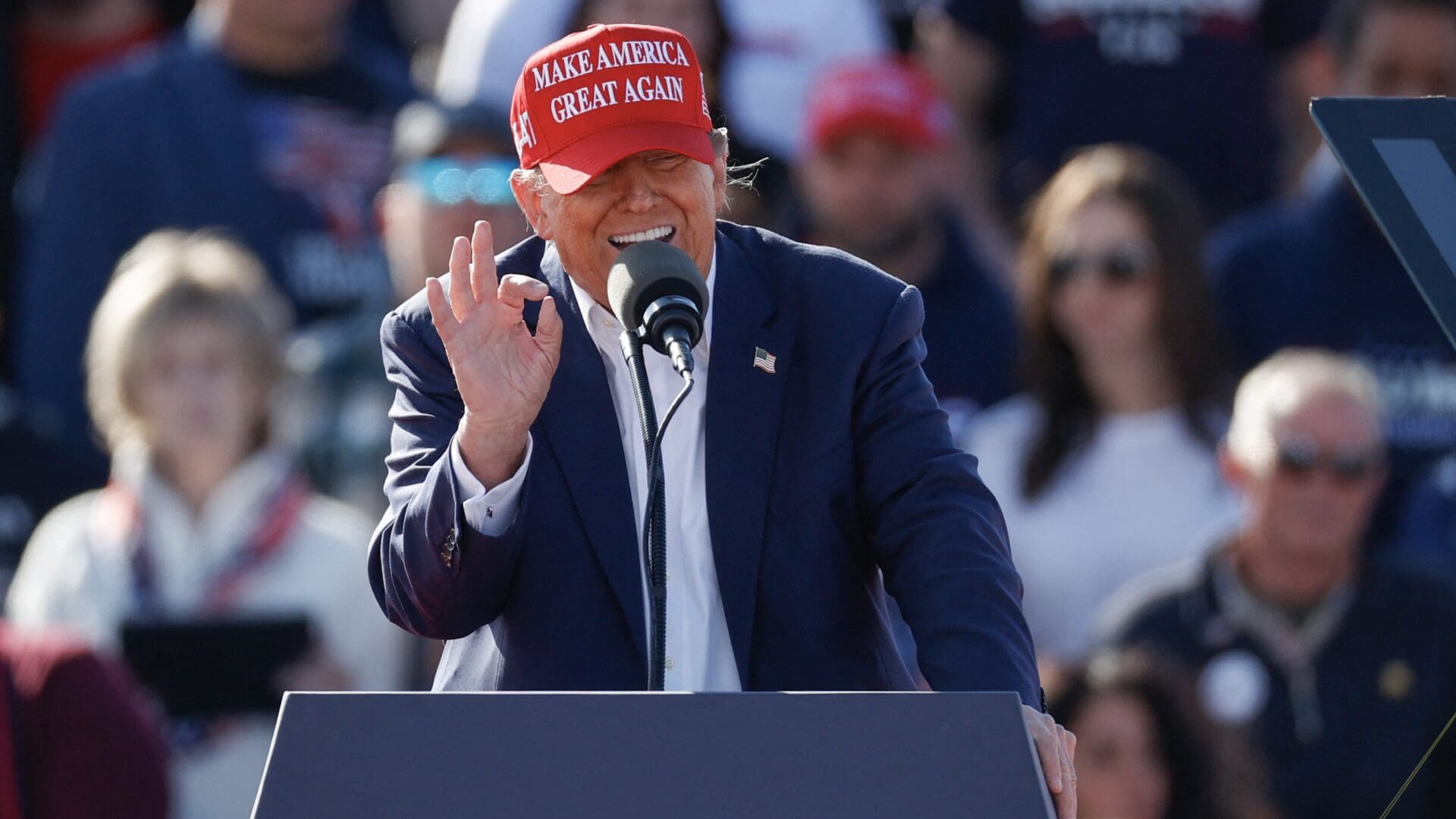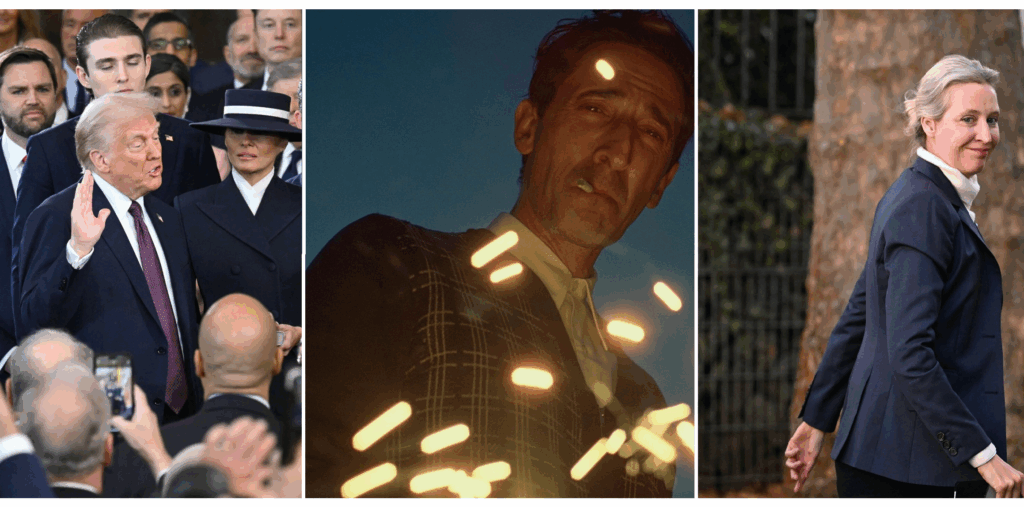‘Trump says there will be “bloodbath” if he loses the elections’; ‘Trump predicts “bloodbath” if he loses election’; ‘Donald Trump warns of “bloodbath” elections ending if he loses’—headlines like this dominated the leftist mainstream media outlets over the weekend, ranging from The Guardian to NBC News to CNN. These headlines suggest to readers that if the former Republican president were to lose the election, his supporters might resort to storming the Capitol, confronting Democratic voters on the streets, and potentially inciting civil unrest or even declaring a state of civil war.
But what exactly did Donald Trump say? His actual words receive considerably less coverage in left-wing media circles than their misrepresentation. But when we look at his remarks in context, it becomes evident that what the liberal media is doing is nothing but a shrewd and insidious form of media manipulation—something at which they excel. Fortunately, there still exist platforms that offer credible and authentic information, like X (formerly known as Twitter), transformed into a bastion of free speech since its acquisition by Elon Musk.
The American billionaire promptly came to Trump’s aid and shared the controversial excerpt from the original speech. Trump made the following statement at a campaign event in Ohio:
‘34 per cent of the automobile manufacturing business in our country went to Mexico. China now is building a couple of massive plants where they’re going to build the cars in Mexico and they think that they’re going to sell those cars into the United States with no tax at the border. Let me tell you something, China. If you’re listening President Xi, you and I are friends, but he understands the way I deal. Those big monster car manufacturing plants that you’re building in Mexico right now and you think you’re going to…not hire Americans, and you’re going to sell the cars to us. Now, we’re going to put a 100 per cent tariff on every single car that comes across the line. If I get elected, now if I don’t get elected, it’s gonna be a bloodbath for the whole—that’s going to be the least of it. It’s going to be a bloodbath for the country.’
Molly Pitcher on Twitter: “Here’s the whole clip of Donald Trump talking about the bloodbath. pic.twitter.com/pu8M35B5MR / Twitter”
Here’s the whole clip of Donald Trump talking about the bloodbath. pic.twitter.com/pu8M35B5MR
So, the former Republican President was discussing the protection of the US car industry, and it was within this context that he made his now famous—or infamous—‘bloodbath’ statement. In the original speech, there was no mention of Trump supporters flooding the streets of American cities in search of Democratic voters after a possible election defeat, nor did Trump suggest calling Republican voters to civil war.
Elon Musk shared the original recording with a succinct but pointed comment:
‘Legacy media lies.’
In another post, he shared a meme featuring grey cartoon characters—referred to as NPCs (non-playable characters known from video games)—chanting ‘Bloodbath!’ The term NPC is used in the right-wing meme universe to describe progressive individuals who are incapable of forming their own thoughts and uncritically accept the narrative of world affairs presented to them by the left-wing media.
Elon Musk on Twitter: “Legacy media lies https://t.co/3yQHajk5BE / Twitter”
Legacy media lies https://t.co/3yQHajk5BE
Acting like a true NPC, US President Joe Biden’s campaign team issued a statement in response to mainstream media headlines:
‘This is who Donald Trump is: a loser who gets beat by over 7 million votes and then instead of appealing to a wider mainstream audience doubles down on his threats of political violence. He wants another January 6, but American people are going to give him another electoral defeat this November because they continue to reject his extremism, his affection for violence, and his thirst of revenge.’
How delusional.
Biden-Harris HQ on Twitter: “Biden-Harris campaign statement on Trump tonight promising a “bloodbath” if he loses pic.twitter.com/8mBYh4QKnf / Twitter”
Biden-Harris campaign statement on Trump tonight promising a “bloodbath” if he loses pic.twitter.com/8mBYh4QKnf
Many other left-wing political figures or media personalities reacted to the out-of-context remarks. Former House Speaker Nancy Pelosi criticized Trump, questioning: ‘What does that mean? Is he going to call for a bloodbath?’ ‘He’s a threat to everyone in the United States of America,’ remarked former federal prosecutor Glenn Kirschner, a vocal critic of Donald Trump.
Familiar Tactics
It’s evident how much outrage and animosity the left-wing media can generate with a single, deliberately misinterpreted quote taken out of context. This is a long-standing tactic, not only prevalent overseas but also in Europe. In many instances, the
target of such smear campaigns is none other than Hungarian Prime Minister Viktor Orbán.
We needn’t look far back to find examples of the cases mentioned above. In his speech in Tusnádfürdő in the summer of 2022, Viktor Orbán stated: ‘In the Carpathian Basin, we are not a mixed race, but simply a mixture of peoples living in their own European homeland.’ The prime minister was clearly addressing the negative effects of illegal migration and the rejection of multicultural societies as a consequence of Western countries’ policies of inclusion. However, progressive media at home and across Europe branded the excerpt from Orbán’s speech as racist, without providing the context of what he said. In several instances, the Hungarian prime minister was compared to Adolf Hitler, and the left-wing majority European Parliament, of course, also condemned PM Orbán’s ‘openly racist’ statement, riding on the back of misleading headlines.
Subsequently, days later, the prime minister clarified what he meant during a press conference in Vienna, emphasizing, which was already evident, that he was not referring to a biological mix but merely a cultural one.
A similarity between Trump and Orbán is their propensity to appeal to emotions in their speeches, employing somewhat ‘blunt’ language. This approach not only aids in effectively conveying their messages to their respective audiences but also attracts scrutiny from the left-wing media.
Given these examples, the decline in media credibility overseas and in Europe comes as no surprise. According to a 2022 Gallup poll, only 7 per cent of Americans trust the media ‘a great deal’. Conversely, 28 per cent ‘do not have very much confidence,’ and 38 per cent have none at all in newspapers, TV, and radio. Gallup also notes that Americans’ trust in the media remains sharply polarized along partisan lines, with 70 per cent of Democrats, 14 per cent of Republicans, and 27 per cent of independents expressing a great deal or fair amount of confidence. This indicates that the overwhelming majority of Democratic voters accept the narrative presented by the progressive press without criticism, despite its factual errors and deliberate misrepresentations.
The situation is similar in Europe. An average of approximately 40 per cent of individuals in Western Europe express trust in the news reported by the media. In contrast, this trust is notably lower, ranging from 25 to 35 per cent, in Eastern and Southern Europe, according to a Reuters poll conducted in 2023.
Read more on the upcoming US presidential election:







